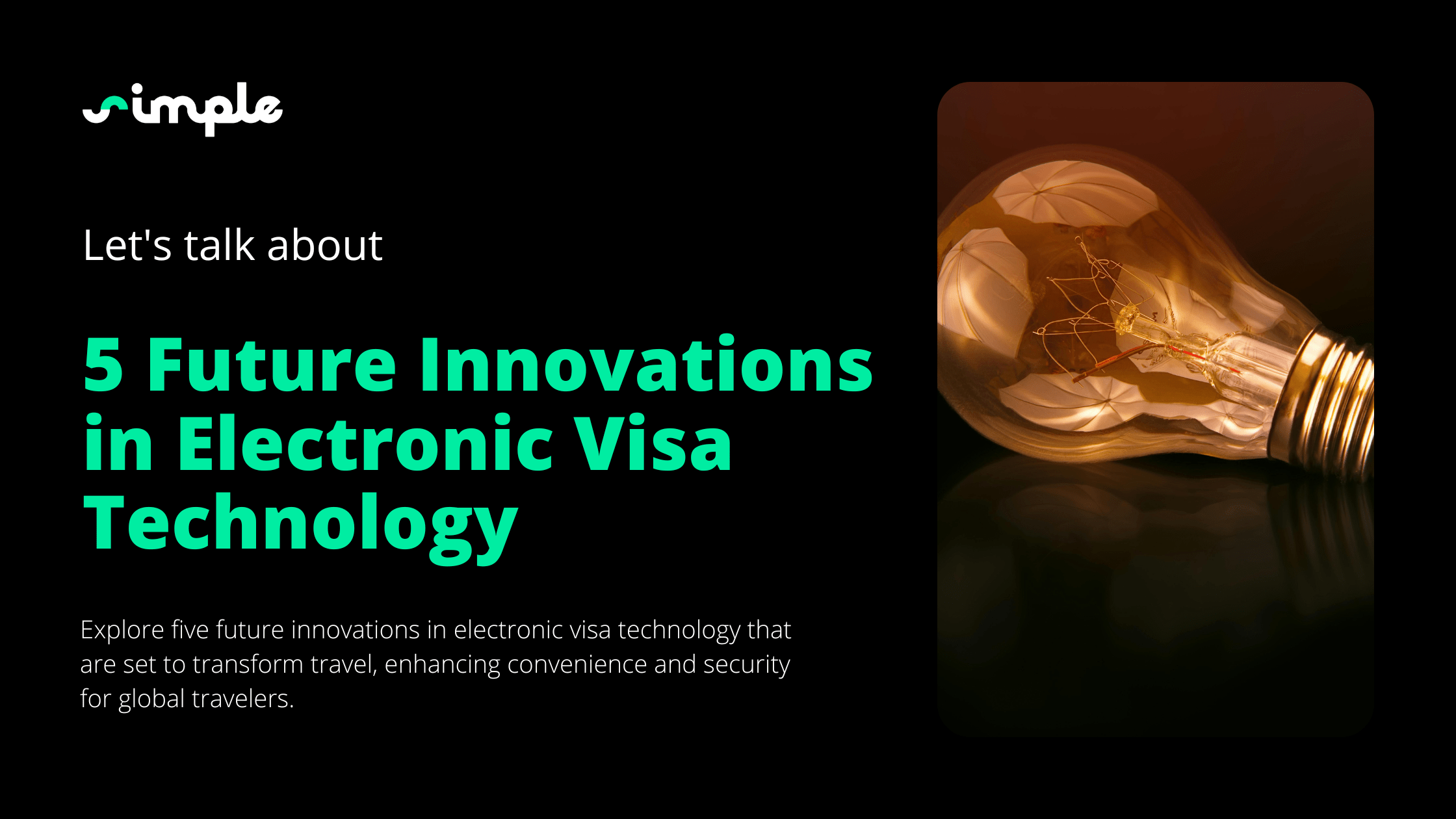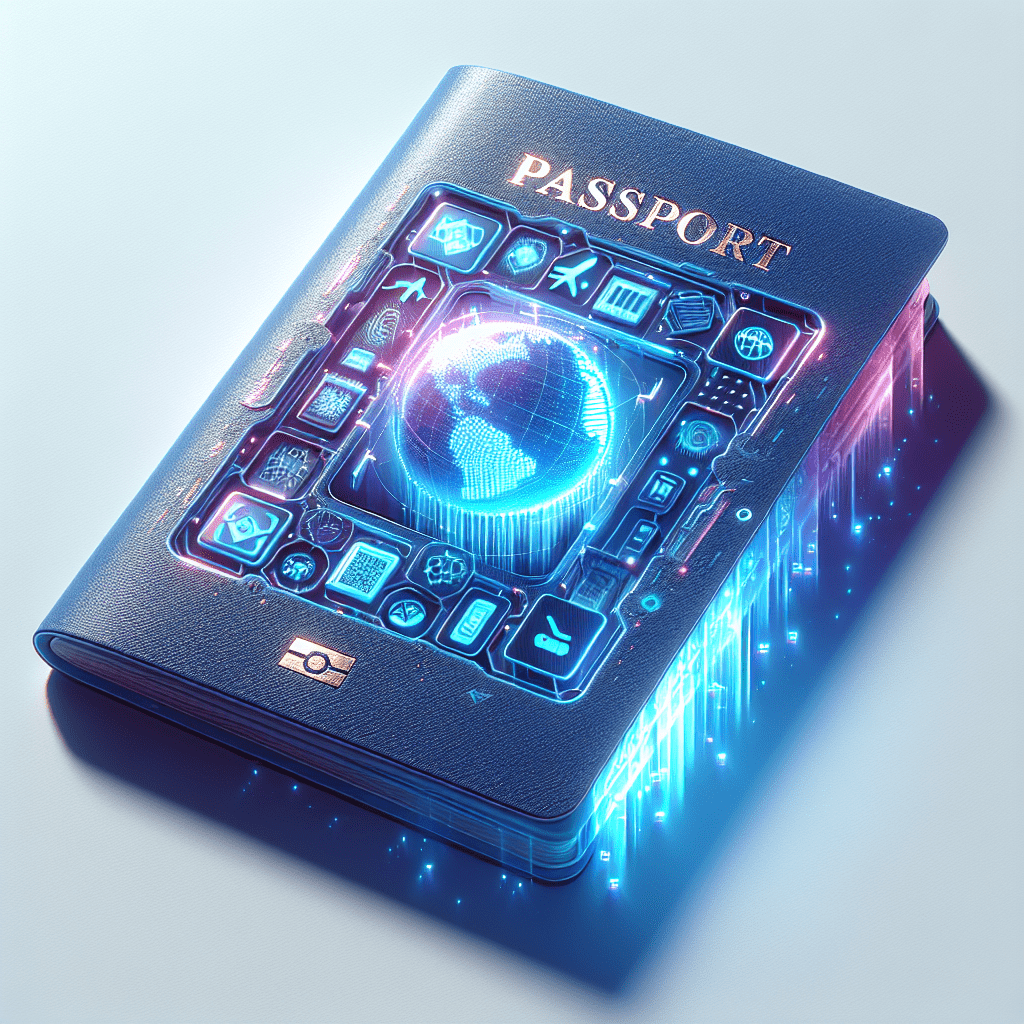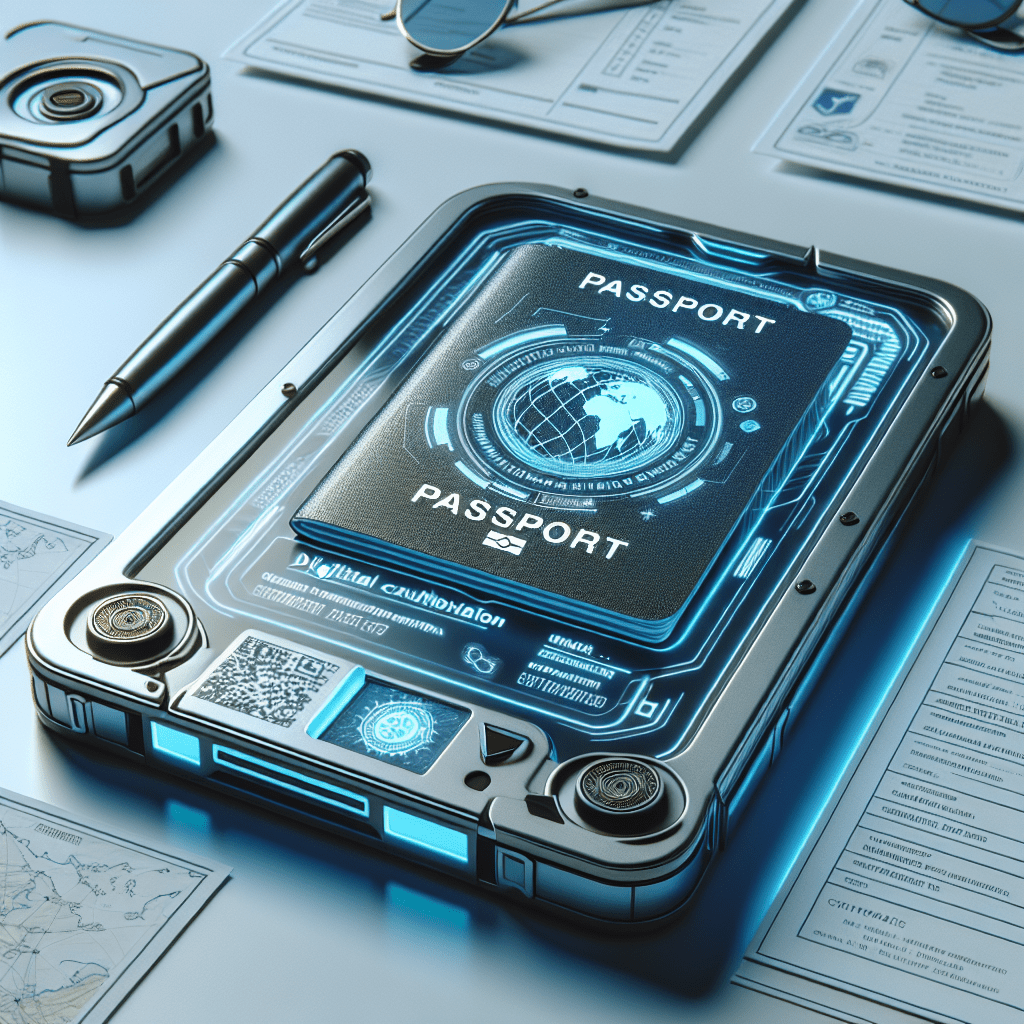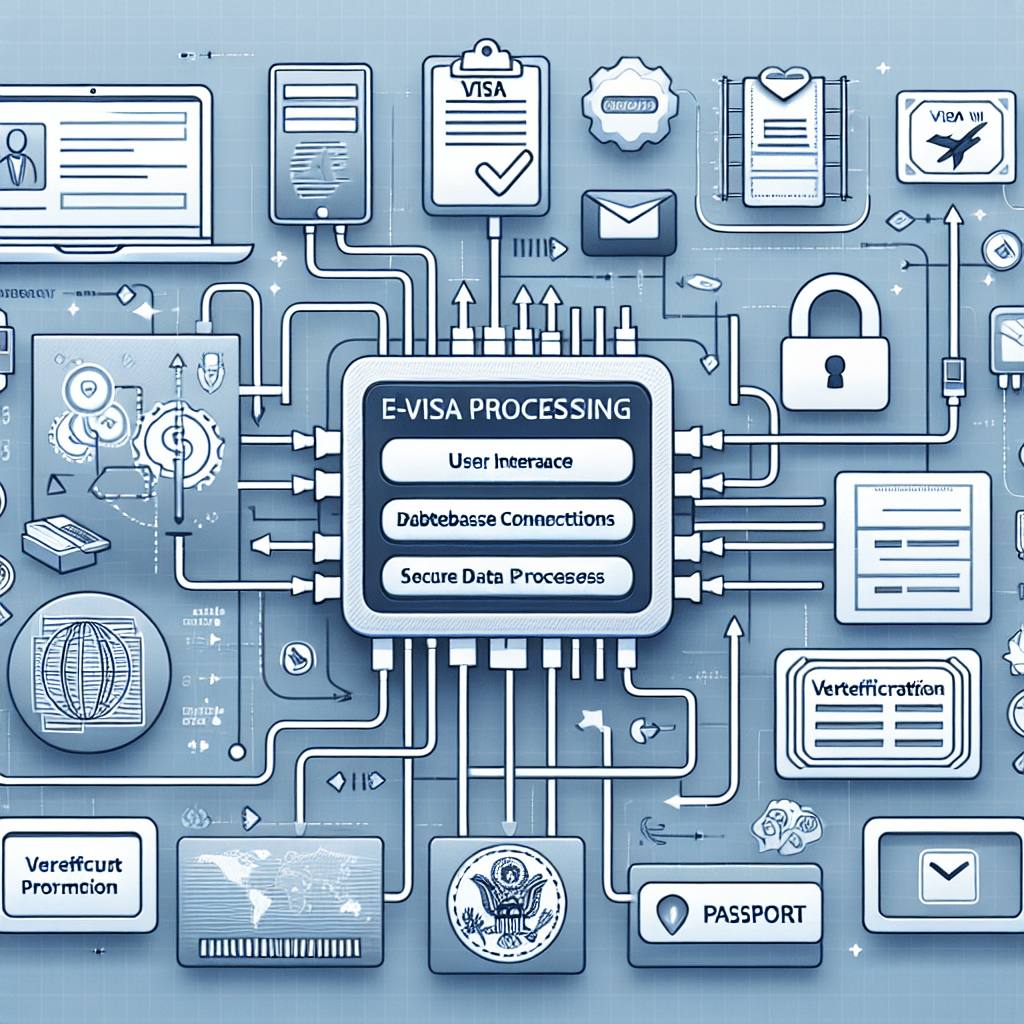5 Future Innovations in Electronic Visa Technology

In an increasingly interconnected world, the demand for seamless and efficient travel solutions has never been higher. Electronic visas have emerged as a pivotal component in facilitating global mobility, offering travelers a convenient and streamlined alternative to traditional visa processes. As countries continue to embrace digital transformation, the electronic visa is becoming an essential tool for modern travel, reducing paperwork and expediting border crossings.
Recent advancements in technology have significantly enhanced the capabilities of electronic visa systems. From digital travel authorization to online visa applications, these innovations are reshaping the way travelers interact with immigration authorities. The integration of cutting-edge technologies such as biometrics, blockchain, and artificial intelligence is setting the stage for a new era in visa processing, promising to enhance security, efficiency, and user experience.
Exploring the future of electronic visa technology reveals a landscape rich with potential. As we delve into the innovations poised to revolutionize this field, it becomes clear that the journey towards a more connected and accessible world is well underway. For more information on electronic visas, visit our electronic visa page.

Biometric Integration
Enhanced Security Through Biometric Data
The integration of biometric data into electronic visa systems marks a significant leap forward in enhancing security measures. By utilizing advanced technologies such as fingerprints and facial recognition, electronic visas are becoming more secure and reliable. These biometric identifiers are unique to each individual, making it exceedingly difficult for identity fraud to occur. As a result, travelers can enjoy peace of mind knowing that their digital travel authorization is protected by state-of-the-art security protocols.
Biometric data not only fortifies the security of electronic travel permits but also streamlines the verification process. Traditional methods of identity verification often involve manual checks and physical documentation, which can be time-consuming and prone to errors. In contrast, biometric systems offer a swift and accurate means of confirming a traveler’s identity, significantly reducing the risk of fraudulent activities. This advancement is particularly beneficial in high-traffic areas such as airports, where efficient processing is crucial.
Streamlined Processing at Borders
The implementation of biometric technology in e-visa processing systems has revolutionized the way travelers are processed at borders. With faster verification processes, travelers can move through checkpoints with minimal delays, enhancing the overall travel experience. The use of biometric data allows for automated visa approval, where travelers’ identities are verified in real-time, reducing the need for manual intervention.
This streamlined approach not only benefits travelers but also immigration authorities, who can allocate resources more effectively. By minimizing the time spent on manual checks, border control personnel can focus on more critical tasks, such as monitoring for potential security threats. The result is a more efficient and secure border management system that benefits all parties involved.
Global Standardization of Biometric Data
As biometric integration becomes more prevalent in electronic visa systems, the need for global standardization of biometric data is increasingly apparent. International cooperation is essential to ensure that biometric identifiers are consistent across different countries, facilitating seamless travel for individuals worldwide. By establishing common standards, countries can enhance the interoperability of their e-visa application portals, making it easier for travelers to obtain the necessary digital immigration documents.
Global standardization also promotes trust and collaboration among nations, as they work together to develop secure and efficient systems for online visa issuance. This cooperation is crucial in addressing the challenges posed by cross-border travel, such as data privacy and security concerns. By adopting standardized biometric protocols, countries can create a more cohesive and reliable web-based visa platform, ultimately improving the travel experience for millions of people around the globe.

Blockchain Technology
Secure and Transparent Data Management
Blockchain technology is poised to transform the landscape of electronic visa systems by offering secure and transparent data management solutions. One of the key advantages of blockchain is its ability to create immutable records of visa applications. Once data is recorded on a blockchain, it cannot be altered or deleted, ensuring the integrity and authenticity of digital travel authorizations. This feature is particularly valuable in preventing fraudulent activities and maintaining accurate records of electronic travel permits.
In addition to enhancing security, blockchain technology also offers improved privacy for travelers. By decentralizing data storage, blockchain reduces the risk of unauthorized access to sensitive information. Travelers can have greater confidence in the protection of their personal data, knowing that their digital immigration documents are stored securely on a distributed ledger. This level of transparency and security is crucial in building trust between travelers and immigration authorities, paving the way for more efficient online visa applications.
Decentralized Visa Processing
The adoption of blockchain technology in e-visa processing systems can significantly reduce bureaucratic delays and increase the efficiency of visa issuance. By decentralizing the visa processing workflow, blockchain eliminates the need for intermediaries and streamlines the approval process. This results in faster processing times and a more efficient allocation of resources, benefiting both travelers and immigration authorities.
Decentralized visa processing also enables automated visa approval, where smart contracts can be used to automatically verify and approve electronic entry permits based on predefined criteria. This automation reduces the potential for human error and ensures that visa applications are processed consistently and fairly. As a result, travelers can enjoy a more seamless experience when applying for internet-based visas, while authorities can focus on more complex tasks that require human intervention.
Cross-Border Data Sharing
Blockchain technology facilitates simplified information exchange between countries, improving collaboration among immigration authorities. By providing a secure and transparent platform for data sharing, blockchain enables countries to access and verify visa information in real-time. This capability is particularly valuable in the context of online immigration clearance, where timely access to accurate data is essential for making informed decisions.
Cross-border data sharing through blockchain also promotes international cooperation in addressing common challenges related to digital border crossings. By working together to develop standardized protocols for electronic travel documents, countries can enhance the interoperability of their e-visa application portals. This collaboration not only improves the efficiency of online visa issuance but also strengthens global security by enabling more effective monitoring and control of cross-border movements.

Artificial Intelligence and Machine Learning
Predictive Analytics for Visa Approvals
Artificial intelligence (AI) and machine learning are revolutionizing the e-visa processing system by introducing predictive analytics for visa approvals. These technologies enable faster decision-making processes by analyzing vast amounts of data to identify patterns and trends. By leveraging AI, immigration authorities can predict the likelihood of visa approval based on historical data and applicant profiles, significantly reducing processing times for digital travel authorizations.
Predictive analytics also play a crucial role in minimizing human error in the visa approval process. Traditional methods often rely on manual checks, which can be prone to oversight and inconsistencies. AI-driven systems, on the other hand, provide a more accurate and consistent approach to evaluating electronic travel permits. This not only enhances the reliability of the approval process but also ensures that applicants receive fair and unbiased assessments, ultimately improving the efficiency of online visa applications.
Personalized Visa Application Experiences
The integration of AI and machine learning into virtual visa services offers the potential for highly personalized visa application experiences. By analyzing user data and preferences, AI systems can provide tailored recommendations to applicants, guiding them through the process of obtaining an internet-based visa. This personalized approach enhances user satisfaction by addressing individual needs and preferences, making the application process more intuitive and user-friendly.
Personalization extends beyond the application process to include ongoing support and assistance. AI-powered chatbots and virtual assistants can provide real-time assistance to applicants, answering questions and resolving issues as they arise. This level of support not only improves the overall experience for users but also reduces the burden on immigration authorities, allowing them to focus on more complex tasks. As a result, the adoption of AI in e-visa application portals leads to a more efficient and satisfying experience for all parties involved.
Real-Time Monitoring and Fraud Detection
AI and machine learning are instrumental in enhancing the security of electronic entry permits through real-time monitoring and fraud detection. These technologies enable the identification of suspicious activities by analyzing data patterns and flagging anomalies that may indicate fraudulent behavior. By continuously monitoring digital immigration documents, AI systems can detect potential threats and take proactive measures to prevent security breaches.
Real-time monitoring also allows for more effective online immigration clearance, as authorities can quickly respond to emerging threats and ensure the integrity of digital border crossings. By leveraging AI-driven insights, immigration authorities can implement targeted interventions to address specific risks, enhancing the overall security of the web-based visa platform. This proactive approach not only protects travelers and authorities but also fosters trust in the electronic visa system, encouraging more countries to adopt these advanced technologies for online visa issuance.

Conclusion
The potential impact of innovations in electronic visa technology on global travel is profound. As biometric integration, blockchain technology, and artificial intelligence become more deeply embedded in e-visa systems, the landscape of international travel is set to transform dramatically. These advancements promise to enhance security, streamline processes, and improve the overall travel experience for millions of people worldwide. By reducing the time and effort required to obtain digital travel authorizations, travelers can enjoy more seamless journeys, free from the bureaucratic hurdles that have traditionally characterized visa applications. Moreover, the increased security measures provided by these technologies will help to build trust between travelers and immigration authorities, fostering a more open and connected world.
Encouraging continued investment and research in electronic visa technology is crucial for realizing the full potential of these innovations. As the demand for efficient and secure travel solutions continues to grow, it is essential for governments, technology providers, and other stakeholders to collaborate in developing cutting-edge systems that meet the needs of modern travelers. By investing in research and development, we can ensure that electronic visa systems remain at the forefront of technological advancements, providing travelers with the most efficient and secure options available. Furthermore, ongoing investment will help to address the challenges associated with implementing these technologies, such as data privacy concerns and the need for global standardization. By prioritizing innovation and collaboration, we can pave the way for a future where electronic visas are an integral part of a seamless and secure global travel ecosystem.